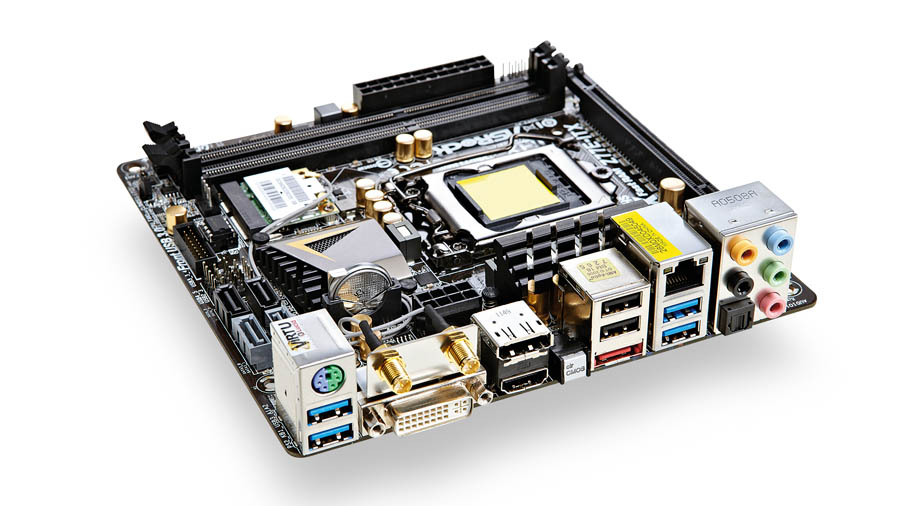TechRadar Verdict
Pros
- +
Good performance
- +
Z77 chipset
- +
Full roster of connections
Cons
- -
Only one PCIe slot (understandable though)
- -
Performance not best in class
- -
Slightly limited overclocking
Why you can trust TechRadar
There is something rather exquisite about the recent glut of small-form factor motherboards. The mini-ITX form factor has been around for a while, but it wasn't until the Sandy Bridge crowd tipped up that we started to see some lovely-looking, teeny-tiny motherboards worth a damn.
With Ivy Bridge and the Z77 platform though things have matured even further. Last month we checked out a pair of beauties from Asus, and here we've got the ASRock competition.
Like the Asus P8Z77-I Deluxe you're looking at a full Z77 motherboard with discrete graphics capabilities and all the overclocking finesse you'd expect of the top Intel chipset.
Where the H77 chipset is rather cut down and lacks real OC support, this Z77E-ITX is fully featured - including some features that you won't even get with full-size ATX boards at this price.
More, more, more
The packed back-plate should give you some idea of how feature-rich the Z77E-ITX is. With three video outputs it's equally at home running off the processor graphics inside the Ivy Bridge CPUs.
There's HDMI, DisplayPort and full DVI too. You've also got four USB 3.0 ports on the back with a single header inside for those chassis with front-mounted USB 3.0 ports. And as well as a pair of SATA 6Gbps and a pair of SATA 3Gbps sockets on the top of the board, on the flipside there's also an mSATA connector if you wanted to add in a PCB-mounted SSD for some space saving.
Unlike some others, that mSATA port isn't used for either Wi-Fi or SSD because there's a second mini PCIe connector next to the DIMM slots fully laden with a Wi-Fi module. But how does it perform?
Sign up for breaking news, reviews, opinion, top tech deals, and more.
Without the Deluxe name or premium price-tag of the Asus board we reviewed a while ago we weren't expecting a huge amount out of the wee ASRock, but it can hold its head up.
Turbo-ing at 3.7GHz it's no slouch, but is slower than the pricier Asus. It also doesn't have the same over-clocking chops without the extra power components of the competition. Still, it managed to hit a stable 4.5GHz and had enough juice to keep the discrete GPU flinging polygons around without any trouble.
Benchmarks
CPU rendering performance
Cinebench R11.5: Index score: Higher is better
ASROCK Z77E-ITX: 7.49
ASUS P8Z77-I DELUXE: 7.9
ASUS P8H77-I: 7.39
CPU encoding performance
X264 v4.0: Frames per second: Higher is better
ASROCK Z77E-ITX: 41.1
ASUS P8Z77-I DELUXE: 43.6
ASUS P8H77-I: 39.0
Gaming performance
Batman: AC: Frames per second: Higher is better
ASROCK Z77E-ITX: 181
ASUS P8Z77-I DELUXE: 184
ASUS P8H77-I: 167
For just over £100, though, it's a great little board. It holds its own against the top mini-ITX Asus board and even against a lot of the full-size competitors.
Performance aside there's not really anything you're missing out should you opt to buy this cheaper mini-ITX board. It's got every modern computing feature you could possibly want and would make the basis for an excellent little gaming machine.
Thanks to some impressive design elements, and the amount of motherboard real-estate freed up by components moving onto the CPU itself, we're now starting to see boards in the mini-ITX form factor that are almost impossible to distinguish in performance or feature-set from their full size compadres.
This ASRock Z77E-ITX board is another, relatively cheap, example of this.
